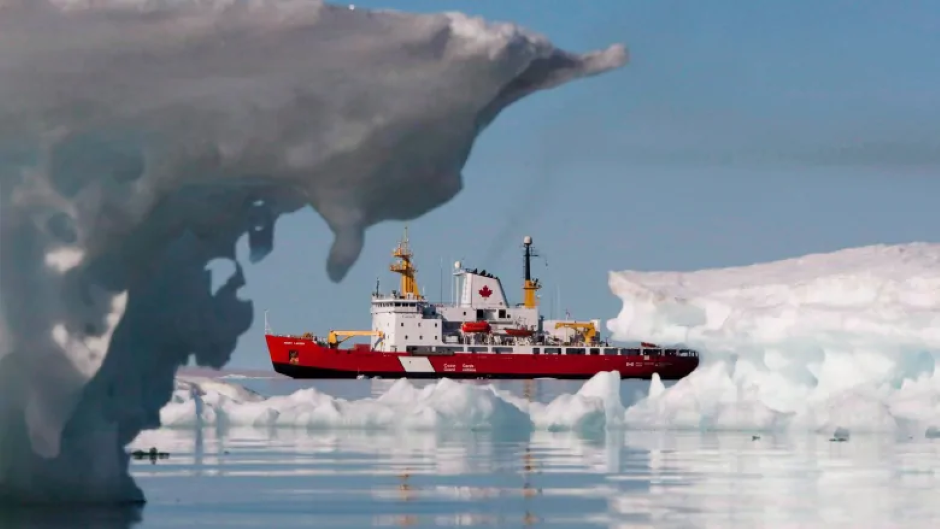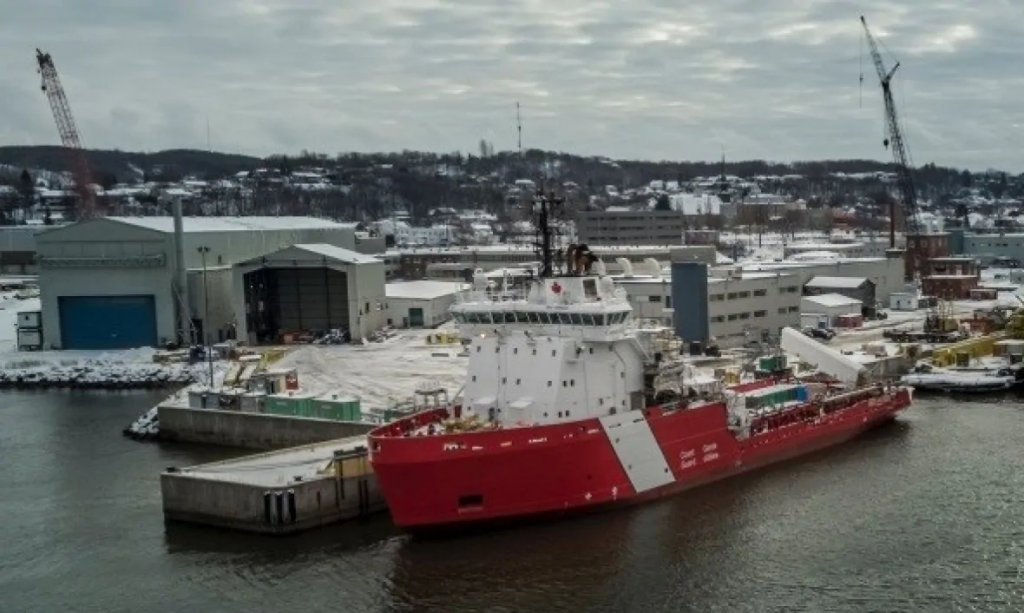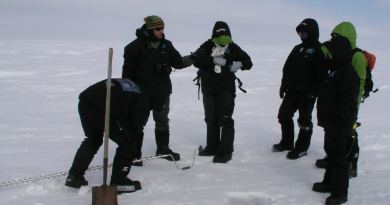Quebec shipyard sets up an Arctic icebreaking research centre in Eastern Canada

Describing itself as Canada’s polar partner, the Chantier Davie Shipyard in Quebec plans to announce the creation of a national centre on Tuesday focusing on icebreaking in the country’s Arctic.
It is, according to a senior executive at the Levis, Que., company, more than just an engineering centre and will encompass the climatic, economic and social factors that will drive the region for the next 30 years and beyond.
“It is a bigger discussion,” said Spencer Fraser, the director of business development for the Inosea Group of Companies, which owns the shipyard. “It’s not just around icebreaking and shipbuilding in Canada.”
The Arctic icebreaking centre is intended to bring together community and business leaders as well as scientists and engineers — from both northern and southern Canada — in a conference later this year.
Shaping the Arctic economy of the 21st century
They’ll be asked to envision and debate what kind of ships and infrastructure are needed to drive future economic and social development in Canada’s Arctic, which is being transformed by climate change and shifting geopolitics.
“We’re getting together to ask: In 2050, the North is going to look like this, what do we want the economy to look like? And what do we need to do today to get the wheels in motion so we can achieve that?” Fraser told CBC News.
More than that, he said, the centre is intended to be a place of ongoing dialogue that will hopefully produce the kind of innovation needed to restore Canada as a world-leader in Arctic operations.
By tapping into a wide range of expertise, he said the Chantier Davie initiative intends to showcase Canadian Arctic ingenuity on the world stage, which has for the last 20 years been dominated by Finland and Norway.

The company, which is on track to be the federal government’s third go-to shipyard under the National Shipbuilding Strategy, intends to carve out a place as the country’s premier icebreaker-builder.
The other two strategic shipbuilding partners are Irving Shipbuilding in Halifax, which concentrates on the construction of warships, and Vancouver’s Seaspan, which is building fisheries science vessels and naval support ships.
Chantier Davie was given a federal contract worth up to $827 million to convert three existing commercial icebreakers for use by the Canadian Coast Guard.
The first vessel — CCGS Captain Molly Kool — was delivered, but the other two — CCGS Jean Goodwill and CCGS Vincent Massey — have been delayed, the Fisheries Department recently told The Canadian Press.
The federal government wants to see its third strategic yard concentrate on building icebreakers and intends to funnel the construction of six ships to the company in the coming year.
Concurrently, it has asked the wider shipbuilding industry to build a case for the construction of heavy icebreakers in the Far North.
Centre should focus on changes facing the Arctic: expert
Rob Huebert, a professor at the University of Calgary and an Arctic expert, said an icebreaking centre of excellence is a novel and important idea.
He said the country was, until the 1980s, a world leader in the field, but interest and investment waned after Far North oil and natural gas development plans were shelved.
However, he said it needs to be more than just window-dressing and a business vehicle for Chantier Davie.
“If they’re being serious, they’ll not just be focused on their product,” Huebert said.
What the centre needs to do is go beyond what one company or another produces and focus on how the changing Arctic will be affected by a myriad of circumstances and conditions and the technology Canada will need to address them, he added.
Climate change and shifting geopolitical rivalries are but two examples.
The Trump Administration recently appointed a career diplomat to become the country’s first Arctic co-ordinator — a sign that the country is taking the region more seriously.
The U.S. Air Force also recently published an Arctic strategy intended to counter Russia and China’s growing influence and ambitions in the region.
Related stories from around the North
Canada: Canada’s long-term neglect of Arctic must stop says Senate report, Eye on the Arctic
Denmark: Denmark, U.S. affirm need to ‘maintain and build situational awareness’ in the Arctic, Eye on the Arctic
Finland: Finland joins other Nordic countries in virtual tourism due to pandemic, Yle News
Iceland: Nordics should aim for common approach to China’s Arctic involvement says report, Eye on the Arctic
Norway: Norway strengthens its Arctic military in new defense plan as security concerns grow in the region, The Independent Barents Observer
Russia: Two Chinese rigs prepare for drilling in Russian Arctic waters, The Independent Barents Observer
Sweden: Sweden’s FM calls for more EU involvement in Arctic as country hosts EU Arctic Forum, Radio Sweden
United States: Appointment of U.S. Arctic coordinator signals more muscular American policy, Radio Canada International



